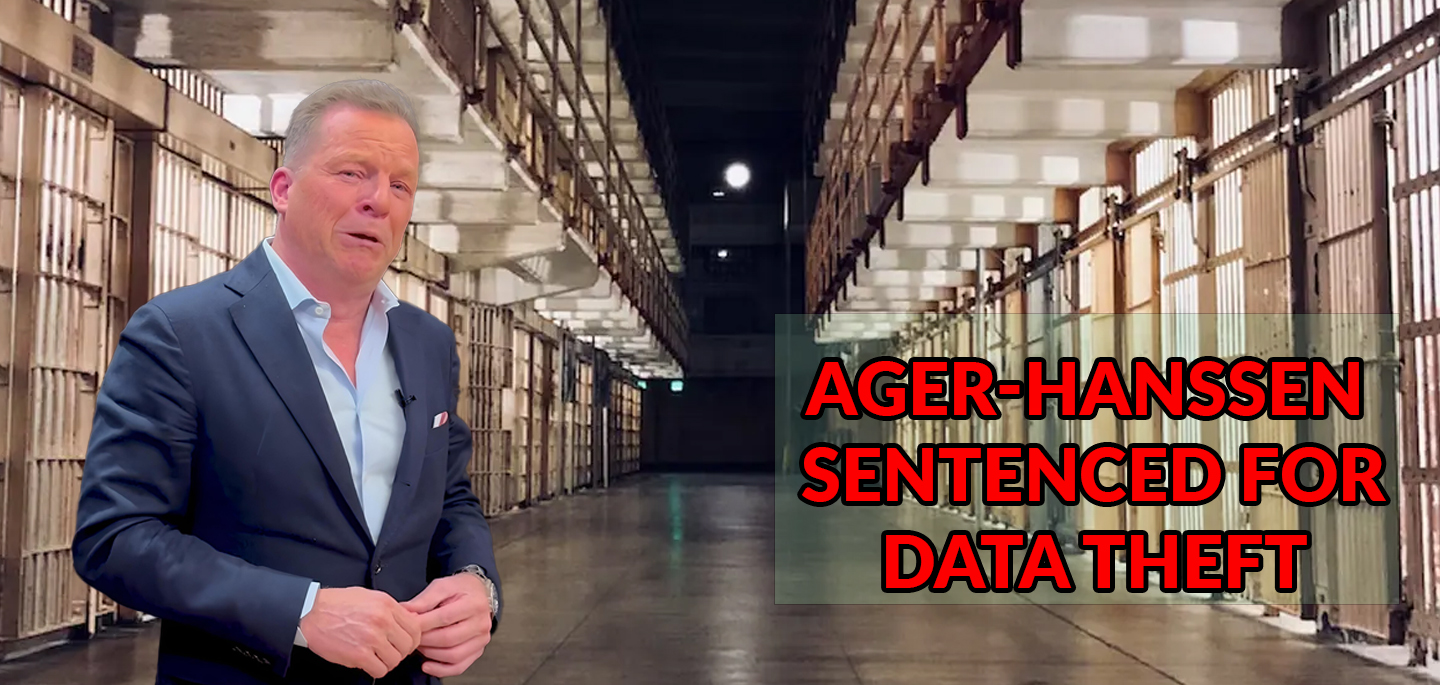Top Ten Bits:
-
Data Theft and Contempt of Court: Ager-Hanssen was sentenced to ten months in prison for data theft and failing to comply with court orders, which included not surrendering devices and access to his email for forensic examination.
-
Misleading Claims of Whistleblowing: Despite claiming to be a whistleblower, the judge dismissed his reports as irrelevant, and he was instead found guilty of contempt for breaching court orders.
-
Creating Corporate Chaos: Ager-Hanssen is described as entering companies, creating chaos, and then attempting to take control or force companies into unwinnable legal battles.
-
Threats and Bullying: He made threats to the founding editor of Realtid, Jonas Wiwen-Nilsson, promising a "war we wouldn’t be able to deal with" if his demands were not met.
-
Fraudulent Activities at FlyMe: Ager-Hanssen's board at FlyMe was involved in fraud, with others going to prison while he avoided imprisonment by cooperating with authorities.
-
Illegal Spam Marketing Apps: His companies have been involved in illegal spam marketing without proper privacy policies or registration with the UK’s Information Commissioner’s Office, making their operations illegal.
-
Data-Stealing Scam with the Tory Party: He was exposed by the Guardian for running a data-stealing scam involving the Conservative Party.
-
Allegations of Deception in Business Practices: He has a history of mixing truth and lies to muddy waters, particularly evident in his alleged whistleblowing activities.
-
Involvement in Legal Battles: Ager-Hanssen is noted for his litigious nature, often dragging companies and individuals into complex and costly legal disputes.
-
Sued by High-Profile Individuals: He is currently being sued by the ex-wife of Putin’s former son-in-law, highlighting his entanglement in high-profile and controversial legal issues.
Summary
The Downfall of a Corporate Maverick
Christen Ager-Hanssen, known for his high-stakes maneuvers in the corporate world, has been sentenced to ten months in prison for data theft. On May 3, 2024, the court found him guilty of contempt for failing to comply with a series of court orders following his dismissal from nChain. This marks a significant turn in a saga characterized by subterfuge, legal defiance, and allegations of whistleblowing.
From Corporate Coup to Legal Quagmire
The drama began when Ager-Hanssen attempted a coup at nChain, a blockchain technology company, which ultimately led to his dismissal. Following his exit, the company secured an injunction to prevent him from disclosing sensitive company information. Despite this, Ager-Hanssen continued to disseminate information through a website and social media, leading to further legal action.
Justice Jacobs, in his judgment, highlighted Ager-Hanssen's deliberate breaches of court orders. Despite claiming ignorance of the hearings, it was evident he had been adequately informed, including by his own clerk. His refusal to comply with the orders to surrender electronic devices and email access further compounded his legal troubles.
A Pattern of Deception
Ager-Hanssen's legal strategy appeared to be one of obfuscation and delay. He represented himself, despite his claims of wealth, and argued he was too ill to participate in legal proceedings while remaining active on social media. This inconsistency did not escape the judge's notice, who saw through the charade.
The court ordered Ager-Hanssen to hand over laptops, a mobile phone, and email access to an independent forensic examiner by January 26, 2024. Instead of complying, he fled to Norway. His actions suggested a deliberate attempt to avoid scrutiny of the materials on his devices, raising questions about what he was trying to hide.
A Legacy of Manipulation
Ager-Hanssen's tactics are not new. His modus operandi involves entering companies, creating chaos, and then offering a resolution in exchange for control. This approach has been documented in previous encounters, such as his attempt to take over the Swedish media company Realtid, where he used threats and legal pressure to achieve his aims.
Jonas Wiwen-Nilsson, founding editor of Realtid, described how Ager-Hanssen threatened a "war we wouldn't be able to deal with" if his demands were not met. This aggressive strategy mirrors his actions at nChain, where he sought to destabilize the company for personal gain.
Whistleblowing or Smokescreen?
Ager-Hanssen's claims of being a whistleblower have also come under scrutiny. The court found that his so-called "Fairway Brief" report, which he touted as exposing wrongdoing, had no impact on the proceedings. Instead, the court viewed it as another tactic to distract and mislead.
Justice Jacobs noted that Ager-Hanssen's continued publication of information on social media indicated a blatant disregard for court orders. His behavior underscores a pattern of deliberate and ongoing breaches, emphasizing the need for his imprisonment to prevent further misuse of confidential information.
The Broader Implications
The case against Ager-Hanssen has broader implications for corporate governance and the legal system. It highlights the challenges companies face when dealing with rogue executives who use legal loopholes and aggressive tactics to achieve their ends. It also underscores the importance of adhering to court orders and the consequences of contempt.
As the legal battles continue, Ager-Hanssen's reputation as a corporate raider remains tarnished. His conviction serves as a warning to others who might seek to manipulate the system for personal gain. The full extent of his actions and their impact on his business dealings will likely unfold in the coming months, shedding more light on a case that has captivated the corporate world.
The Road Ahead
While Ager-Hanssen serves his sentence, the investigation into his activities continues. Questions remain about what he was so desperate to conceal and the true extent of his actions. As authorities in Sweden and Norway close in, his future in the business world appears increasingly uncertain. The saga of Christen Ager-Hanssen is far from over, and the revelations to come may yet provide the final pieces of a complex puzzle.

